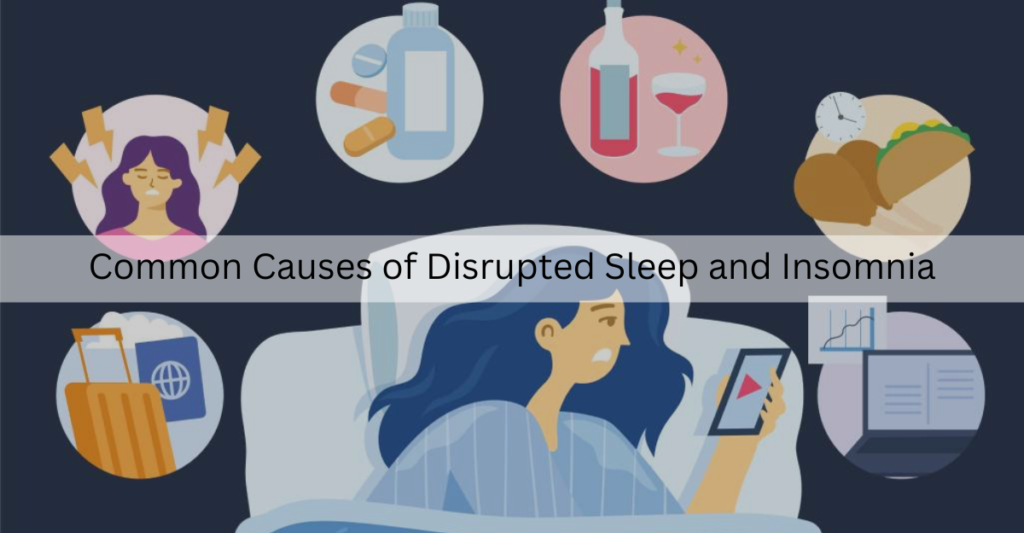Healthy Sleep Habits: Tips for a Restful Night and Better Health
- 157 Views
- Rupali
- May 23, 2024
- Blog Health and Wellness Lifestyle
The Importance of Quality Sleep for Overall Health
Quality sleep is essential for our overall health and well-being. Getting enough restful sleep each night plays a important role in supporting physical, mental, and emotional health.
Adequate sleep allows the body to repair and regenerate cells, consolidate memories, and regulate hormones. On the other hand, lack of sleep can have detrimental effects, increasing the risk of chronic conditions like obesity, heart disease, and diabetes.
Beyond physical health, sleep also impacts cognitive function, mood, and mental sharpness. Quality sleep enhances focus, memory, and decision-making abilities, while sleep deprivation can lead to irritability, difficulty concentrating, and increased susceptibility to stress and anxiety.
Prioritizing good sleep habits, such as maintaining a consistent sleep schedule, creating a relaxing bedtime routine, and limiting screen time before bed, can have far-reaching benefits for one’s overall health and quality of life.
Common Causes of Disrupted Sleep and Insomnia

Disrupted sleep and insomnia can have a significant impact on our overall health and well-being. Understanding the common causes of these issues is the first step towards finding effective solutions.
Some of the most prevalent causes of disrupted sleep and insomnia include:
Stress and Anxiety: High levels of stress and anxiety can make it difficult to fall and stay asleep, as the body remains in a heightened state of arousal.
Irregular Sleep Schedules: Inconsistent bedtimes and wake-up times can disrupt the body’s natural circadian rhythms, leading to difficulty falling and staying asleep.
Caffeine and Stimulant Consumption: Consuming caffeine, nicotine, or other stimulants too close to bedtime can interfere with the body’s ability to fall asleep.
Uncomfortable Sleep Environment: Factors such as excessive light, noise, or an uncomfortable mattress and bedding can all contribute to poor sleep quality.
Underlying Health Conditions: Certain medical conditions, such as chronic pain, sleep apnea, or hormonal imbalances, can disrupt sleep patterns.
Through the identification and resolution of these prevalent causes, people can proactively enhance their overall health and quality of sleep.
Establishing a Consistent Sleep Routine
By creating a predictable sleep-wake cycle, you can improve the quality of your sleep and feel more rested during the day. Here are some informative tips to help you establish a healthy sleep routine:
Stick to a Schedule: Go to bed and wake up at the same time every day, even on weekends. This helps regulate your body’s internal clock and promotes better sleep.
Create a Relaxing Bedtime Routine: Engage in calming activities before bed, such as reading a book, taking a warm bath, or practicing light stretching. This signals to your brain that it’s time to wind down.
Optimize Your Sleep Environment: Keep your bedroom cool, dark, and quiet. Invest in a comfortable mattress and pillows to ensure a restful night’s sleep.
Limit Screen Time: Avoid using electronic devices like smartphones, tablets, or computers close to bedtime. The blue light emitted by these devices can disrupt your body’s natural sleep-wake cycle.
Dietary and Lifestyle Changes to Promote Healthy Sleep

A good night’s sleep is crucial for maintaining our general health and wellbeing. However, a lot of people have trouble sleeping for a variety of reasons, such as their nutrition and way of life. We’ll look at dietary and lifestyle modifications that can support better sleep in this blog area.
Diet and Sleep:
The foods and beverages we consume can have a significant impact on our sleep quality. Certain nutrients, such as tryptophan, melatonin, and magnesium, can support the body’s natural sleep-wake cycle. Incorporating sleep-promoting foods like fatty fish, nuts, seeds, and whole grains into your diet can help you fall asleep faster and sleep more soundly.
Exercise and Sleep:
Regular physical activity has been shown to improve sleep quality. Engaging in moderate exercise during the day can help reduce stress, regulate the body’s circadian rhythm, and prepare the body for better sleep at night. However, it’s important to avoid intense workouts close to bedtime, as they can be stimulating and disrupt sleep.
Lifestyle Habits for Sleep:
Establishing a consistent sleep routine and creating a sleep-conducive environment are also crucial for promoting healthy sleep. Practices like limiting screen time before bed, creating a dark and cool sleeping environment, and engaging in relaxing activities like reading or light stretching can all contribute to better sleep quality.
People may take early steps to improve their general health and well-being as well as their sleep quality by adopting thoughtful dietary and lifestyle adjustments.
Natural Remedies and Supplements to Aid Sleep
Getting a good night’s sleep is essential for our overall health and well-being, but many people struggle with insomnia or poor sleep quality. Fortunately, there are a number of natural remedies and supplements that can help promote better sleep without the use of pharmaceutical sleep aids.
Some of the most effective natural sleep aids include herbal teas like chamomile, valerian root, and passionflower, which have been used for centuries to induce relaxation and sleepiness. Melatonin, a hormone naturally produced by the body, can also be taken as a supplement to regulate the sleep-wake cycle.
Other natural supplements that may aid sleep include magnesium, calcium, glycine, and omega-3 fatty acids. These nutrients play important roles in sleep regulation and can help improve sleep quality when taken as part of a balanced diet or in supplement form.
It’s important to note that while these natural remedies are generally safe, it’s always a good idea to consult with a healthcare professional before trying any new sleep aid, especially if you have an underlying medical condition. With the right natural solutions, however, you can find safe and effective ways to get the restful sleep your body needs.
Conclusion: Prioritize Sleep for Improved Health, Productivity, and Quality of Life
Categories
- Blog
- Career and Education
- Career Development Advice
- DIY Projects
- Fashion and Beauty
- Fashion Trends
- Food and Cooking
- Food Trends
- Health and Wellness
- Home and Decor
- Home Organization Tips
- Interior Design Ideas
- Lifestyle
- Personal Development
- Productivity Tips
- Recipes and Cooking Tips
- Restaurant Reviews
- Self-Care and Mental Health
- Skincare and Beauty Tips
- Tech News and Trends
- Technology
- Travel
- Travel Tips and Hacks
Popular Tags
5 areas of personal development 5 benefits of self-care 5 ways to increase productivity 2024 fashion trends streetwear 2024 fashion trends woman Career career development plan cooking skills Daily skin care routine at home Digital Trends fashion trend forecast 2024 vogue Fashion trends 2024 fashion trends 2024 spring/summer fashion trends for women Food Trends Health and Wellness Healthy skin tips for face Home Organization Hacks https://wefocuseducom.com/ inexpensive home organization ideas Interior design ideas living room latest information technology trends Latest trends in fashion for ladies Lifestyle Lifestyle for Wellness list of careers in education mental health mental health awareness personal development examples positive mindset positive restaurant reviews (examples) practicing mindfulness productivity tips Self-Care Self-Care and Mental Health self-care tips for mental health spring/summer 2024 fashion trends women's technology time management skills Top 10 tips to maintain your mental health top new technologies Tried-and-Tested Recipes what are 5 careers in education what are the 3 aspects of personal development? What is self-care

